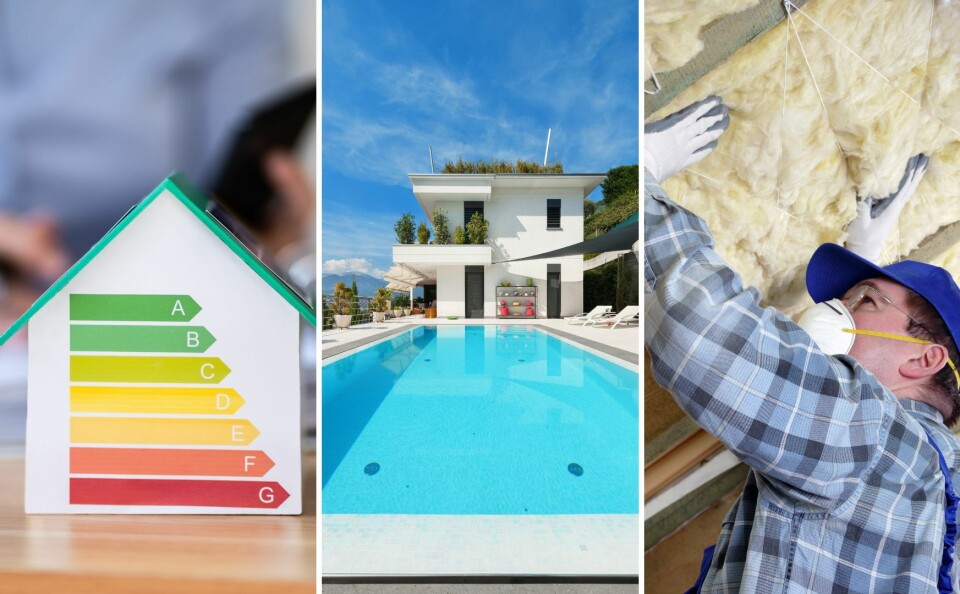-
Hosting scheme in south-west France lets newcomers sample lifestyle
Households in nine Dordogne communes volunteer under Mes Nouveaux Voisins scheme
-
How long does it take to sell property in different areas of France? New study
Many major cities are showing signs of recovery when it comes to supply, demand, prices, and time to sell
-
Paris pledges action against voyeurs in public swimming pool changing rooms
It comes after several women came forward to report similar sexual assaults
Energy audits, tax, grants: What is new for property in France in 2023
We look at the energy diagnostic tests needed for sales or letting and why installing a pool will cost more

Paris roof gardens
Plans are moving ahead for new rooftop garden projects in Paris, as French startup company Roofscapes awaits a decision on planning applications for two prototype projects in the first and tenth arrondissements.
Roofscapes, set up by three postgraduate French students who met at MIT in the US, hopes to create many such roof garden schemes in the capital.
They say the gardens can help lower temperatures in the city centre, which is warmer than outlying countryside, and encourage biodiversity.
They intend to build timber platforms that can fit over the traditional irregular, pitched grey zinc roofs.
Up to now, they say, roof gardens have been rare in France, and where they exist are usually minimal and typically found on flat modern roofs.
They hope building owners will take on the concept and make the new gardens accessible to all residents in the buildings (not just top-floor owners).
Roofscapes has contributed to the Paris at 50C project.
Read more: Paris’ grey skyline could turn green if roof garden idea approved
Energy audits for homes
When a property is put up for sale or rent in France, its owner must hire a professional to carry out a diagnostic de performance énergétique or DPE (energy performance certificate).
This uses a graded rating scheme – from A to G – to indicate how energy-efficient the property is and to encourage efforts to reduce its consumption.
Homes with the lowest energy efficiency ratings will soon be banned from the rental market unless they undergo renovations to make them more eco-friendly, as a result of the Loi Climat et résilience.
From January 1, 2023, people who own properties with an energy efficiency rating of G – the lowest score possible – and which also consume over 450kWH per square metre per year, will no longer be able to rent them out.
This rule will extend to all G-rated properties from 2025, all F-rated properties from 2028 and all E-rated properties from 2034.
Read also: French property sales: Why do some listings not have energy ratings?
Renovation grants experts
Homeowners applying for the MaPrimeRénov’ grant will this year be obliged to sign up for support from an expert called Mon Accompagnateur Rénov’ in certain cases.
This applies now for those aiming for overall home energy improvement via a Sérénité version of the grant.
From September, it will apply to those seeking grants of €10,000 or more for two or more works.
The work of the expert may be free or paid for, depending on local funding arrangements in your area and/or means. More information can be found at France-renov.gouv.fr
Read more: Homeowners applying for French renovation grants will need consultant
Swimming pool and shed tax rise
Taxe d’aménagement, payable on completion of swimming pools, sheds and other extensions and additions to properties, is rising, especially for pools.
A set value used to calculate the tax is going up 25% from €200 to €250 per square metre for pools.
Read more: New shed or pool at your French home? Remember the taxe d’aménagement
Related articles
Can I add a swimming pool to French home without paying more in tax?
France looks to make eco-renovations easier for flat owners
Easy-fit French solar panels could cut electricity bill by €30 a month
























